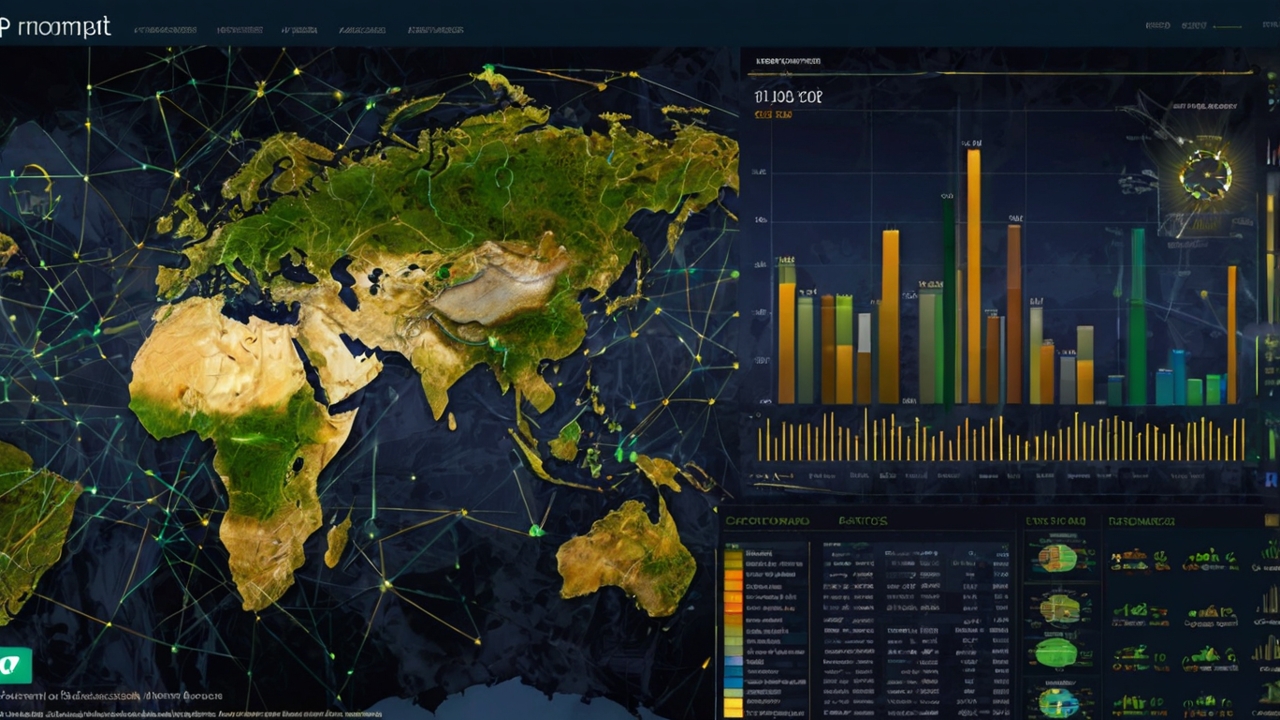ETFs in the Arab Market: Growth Opportunities and Challenges
Exchange-Traded Funds (ETFs) are investment instruments that combine the advantages of mutual funds and individual stocks. They allow investors to gain exposure to a diversified basket of assets (such as stocks, bonds, and commodities) at a low cost and with ease of trading. In recent years, ETFs have experienced tremendous growth in global markets, and now they are gaining momentum in the Arab market.
1. What are Exchange-Traded Funds (ETFs)?
An ETF is an investment fund that is traded on stock exchanges just like stocks. An ETF typically tracks a specific index (such as a stock market index), a specific sector (such as the technology sector), or a specific investment strategy. When you invest in an ETF, you are buying a share in a diversified portfolio of assets instead of buying shares of a single company.
2. Advantages of Exchange-Traded Funds (ETFs)
- Diversification: ETFs provide instant diversification for the investment portfolio, reducing the risks associated with investing in individual stocks.
- Low Cost: ETF management fees are usually much lower than those of traditional mutual funds.
- Liquidity: ETFs can be easily traded on exchanges during trading hours, providing high liquidity for investors.
- Transparency: ETF holdings are usually disclosed daily, allowing investors to know the assets they own.
- Flexibility: ETFs can be used to implement various investment strategies, such as long-term investing, short-term speculation, and hedging risks.
3. ETFs in the Arab Market: An Overview
Although the ETF market in the Arab region is still in its early stages, it is experiencing gradual growth. Currently, a limited number of ETFs are available that invest in Arab stocks and bonds, as well as ETFs that track global indices and allow Arab investors to gain exposure to global markets.
4. Growth Opportunities in the Arab Market
Several factors support the growth of the ETF market in the Arab region:
- Increased Investment Awareness: Arab investors are witnessing an increase in awareness of the importance of diversification and long-term investing, which increases the demand for ETFs.
- Development of Financial Infrastructure: Arab governments are working to develop the financial infrastructure, making it easier to launch and trade ETFs.
- Increasing Wealth: With economic growth in the region, the wealth available for investment is increasing, providing a larger base for ETF investors.
- Institutional Demand: The interest of Arab investment institutions (such as pension funds and insurance companies) in investing in ETFs is increasing, increasing the size of the market.
5. Challenges Facing ETFs in the Arab Market
Despite the growth opportunities, ETFs face some challenges in the Arab market:
- Limited Available Products: The number of ETFs available in the Arab market is still limited, reducing the diversification options available to investors.
- Low Liquidity: Liquidity in some Arab ETFs may be low, increasing trading costs.
- Limited Awareness: Awareness of ETFs is still limited among Arab investors, hindering market growth.
- Regulations: Regulations related to ETFs in some Arab countries may be unclear or complex, hindering the launch of new products.
- Trading Costs: Trading costs on some Arab stock exchanges may be relatively high, reducing the attractiveness of ETFs for small investors.
6. Examples of ETFs Available in the Arab Market
Despite the limited options, some ETFs are available for Arab investors to invest in. These ETFs include:
- ETFs that track Arab stock indices: These ETFs allow investors to gain exposure to the stock market in a specific Arab country or in the Middle East and North Africa (MENA) region.
- ETFs that track global indices: These ETFs allow Arab investors to gain exposure to global markets (such as the United States, Europe, and emerging markets) without having to open accounts abroad.
- ETFs that invest in commodities: These ETFs allow investors to gain exposure to commodity prices (such as oil and gold) without having to purchase the physical commodities.
7. How to Invest in ETFs in the Arab Market
To invest in ETFs in the Arab market, investors must:
- Open a brokerage account: Investors must open a brokerage account with a company licensed to operate on the local stock exchange.
- Research available ETFs: Investors should research the ETFs available in the market and compare their performance and fees.
- Place a buy order: Investors should place a buy order for the ETF they wish to invest in through their brokerage account.
- Monitor the investment: Investors should monitor their investments in ETFs regularly and evaluate their performance.
8. Tips for Investors in ETFs in the Arab Market
Here are some tips for investors who want to invest in ETFs in the Arab market:
- Do thorough research: Before investing in any ETF, make sure you understand its investment objectives, strategy, and fees.
- Diversify your portfolio: Don't put all your money into one ETF. Diversify your portfolio by investing in a variety of ETFs and other assets.
- Be aware of the risks: Remember that investing in ETFs carries risks, including market risks and liquidity risks.
- Consider your investment goals: Choose ETFs that align with your investment goals and risk tolerance.
- Consult a financial advisor: If you are unsure how to invest in ETFs, consult a qualified financial advisor.
9. The Future of ETFs in the Arab Market
The ETF market is expected to continue to grow in the Arab region in the coming years. With increased investment awareness and the development of financial infrastructure, we are likely to see the launch of more new ETFs and greater trading in existing ETFs. ETFs can play an important role in developing Arab financial markets and providing new investment opportunities for investors.
10. Conclusion
ETFs represent a promising investment opportunity in the Arab market, but they require a good understanding of their advantages and risks. With proper planning and careful research, investors can benefit from these investment tools to achieve their financial goals.




